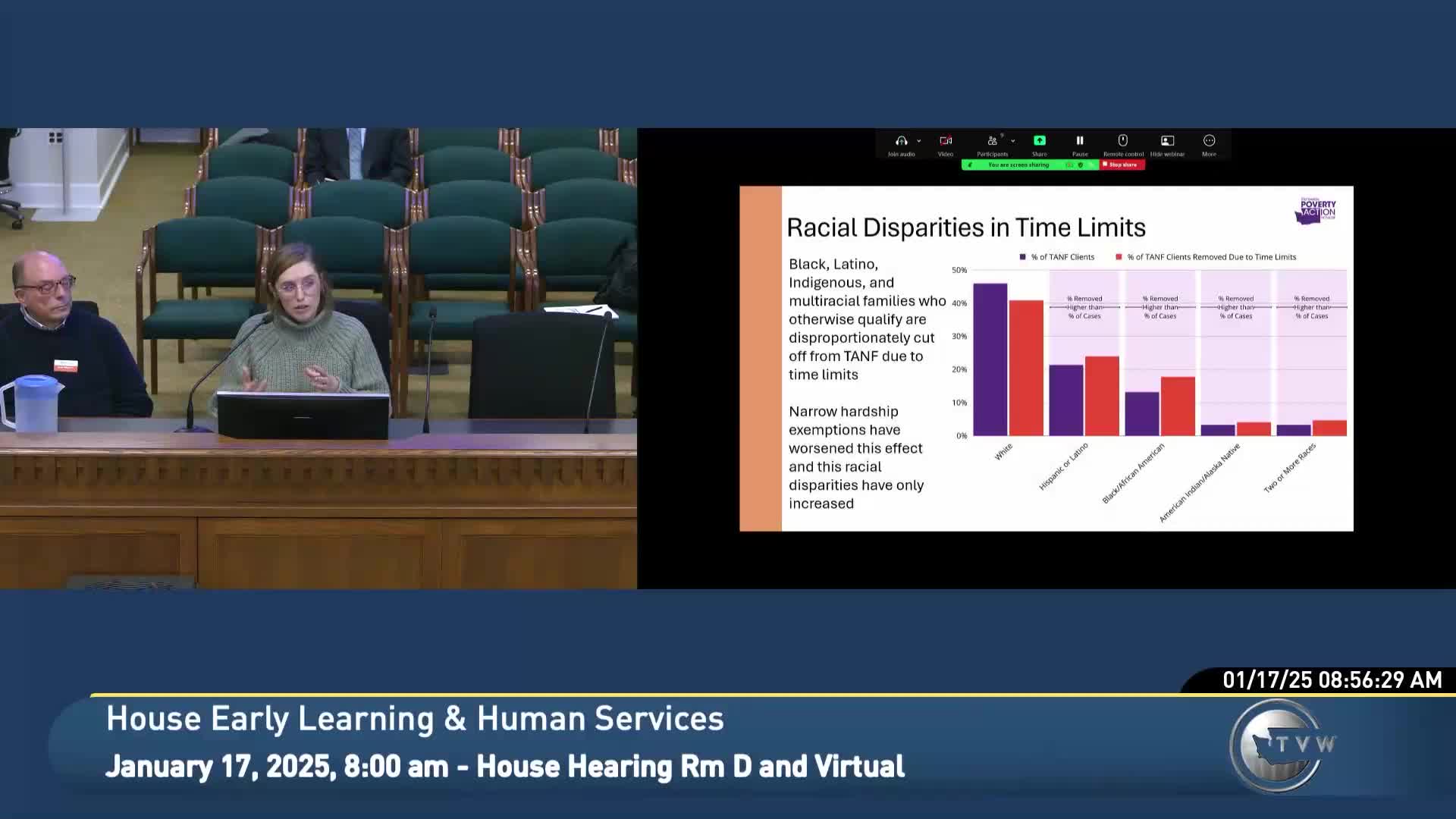Article not found
This article is no longer available. But don't worry—we've gathered other articles that discuss the same topic.
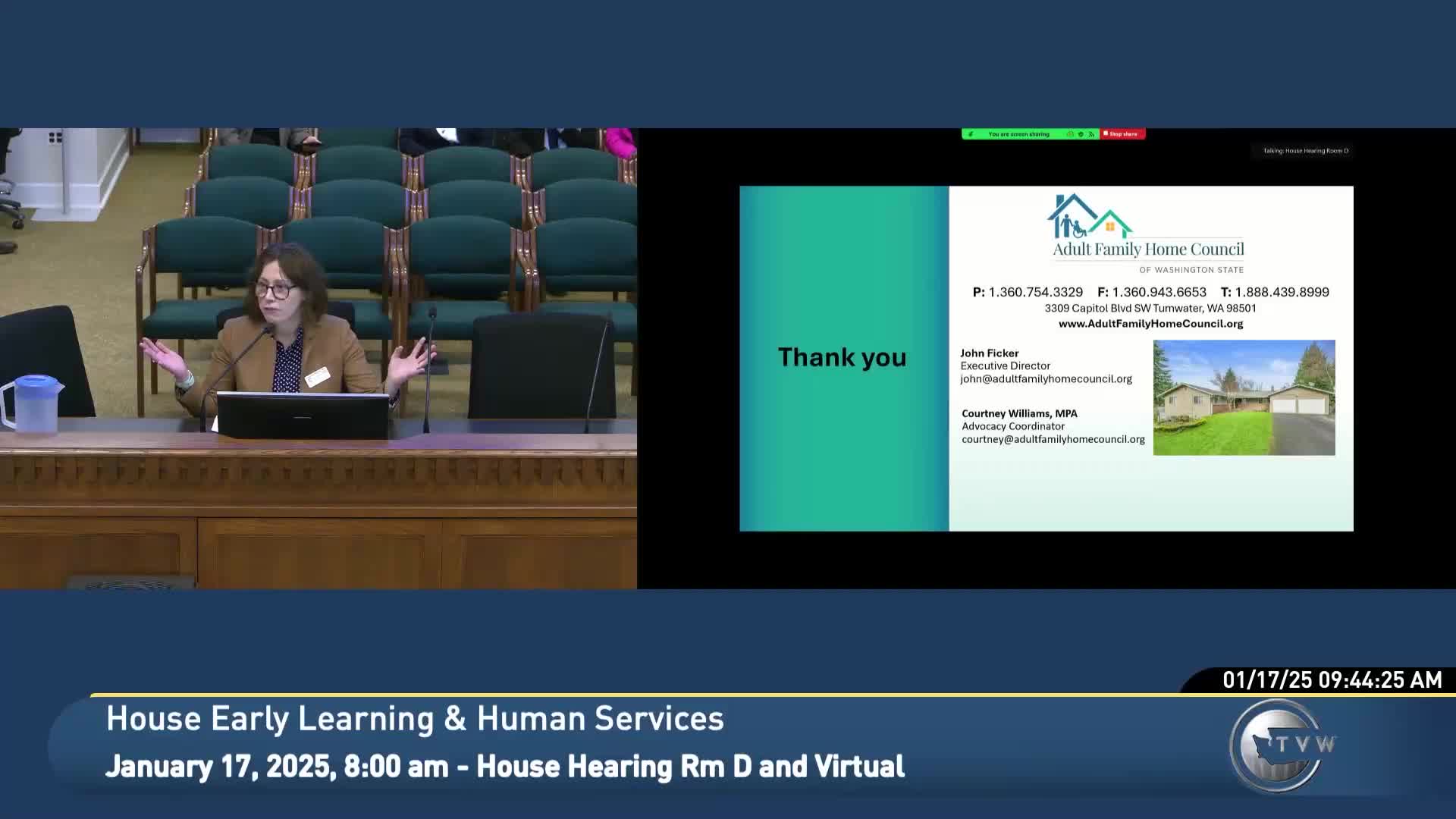
WA Cares Fund director summarizes earned-benefit design, portability and contribution rules
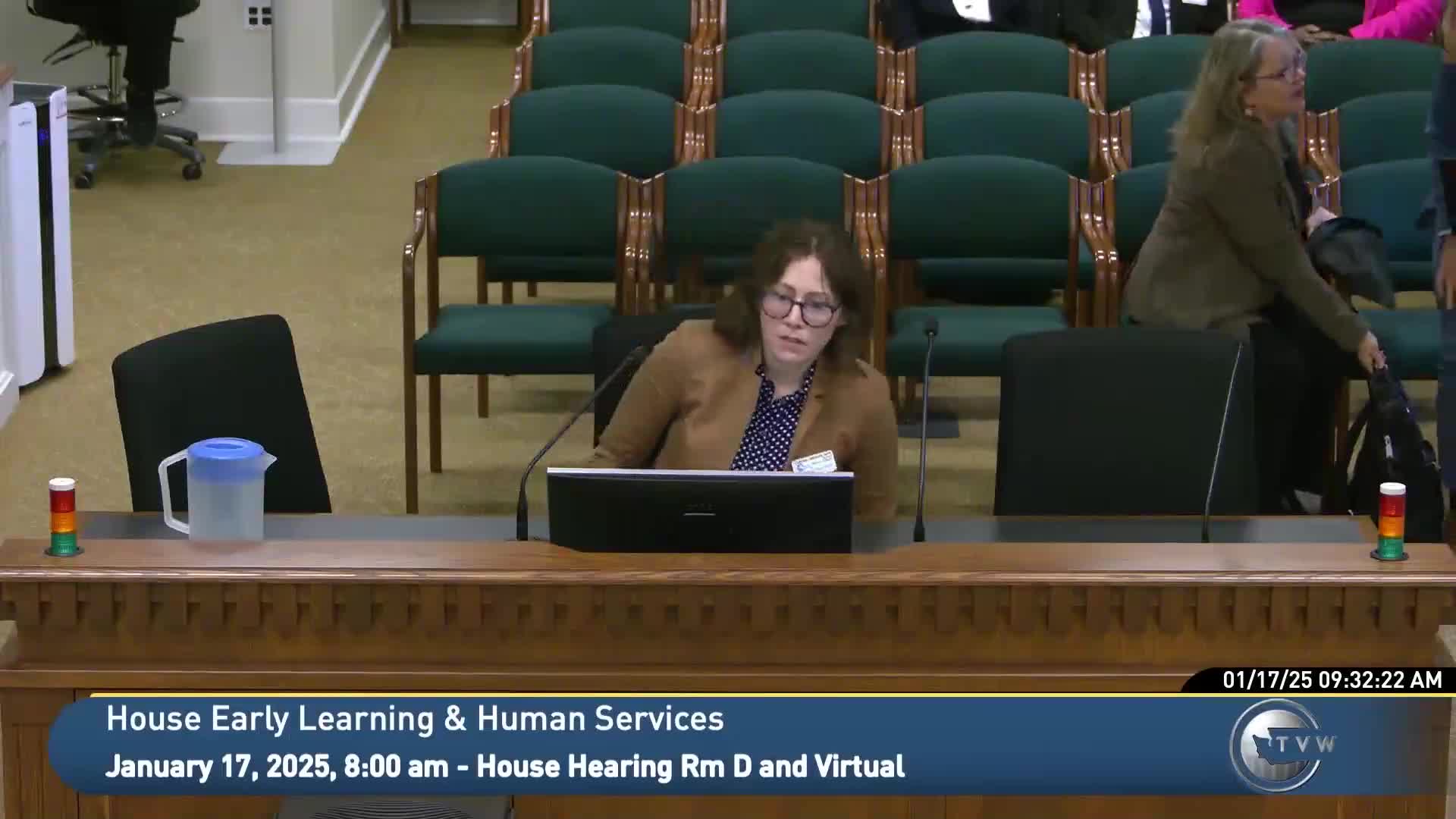
Adult family home representatives press for pilot expansion, workforce support and visibility
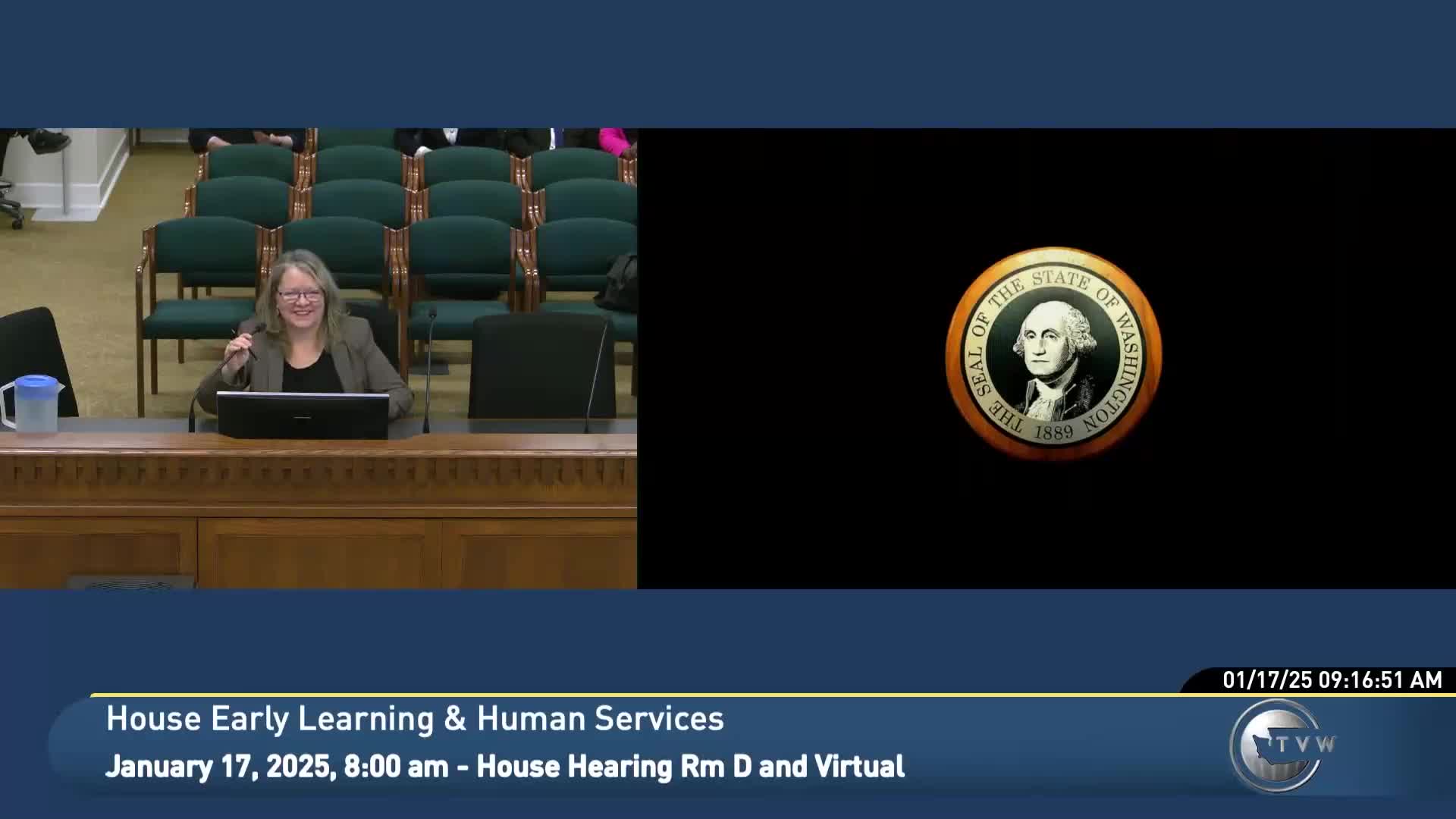
Aging and Long Term Support Administration lays out service mix, workforce and regulatory priorities
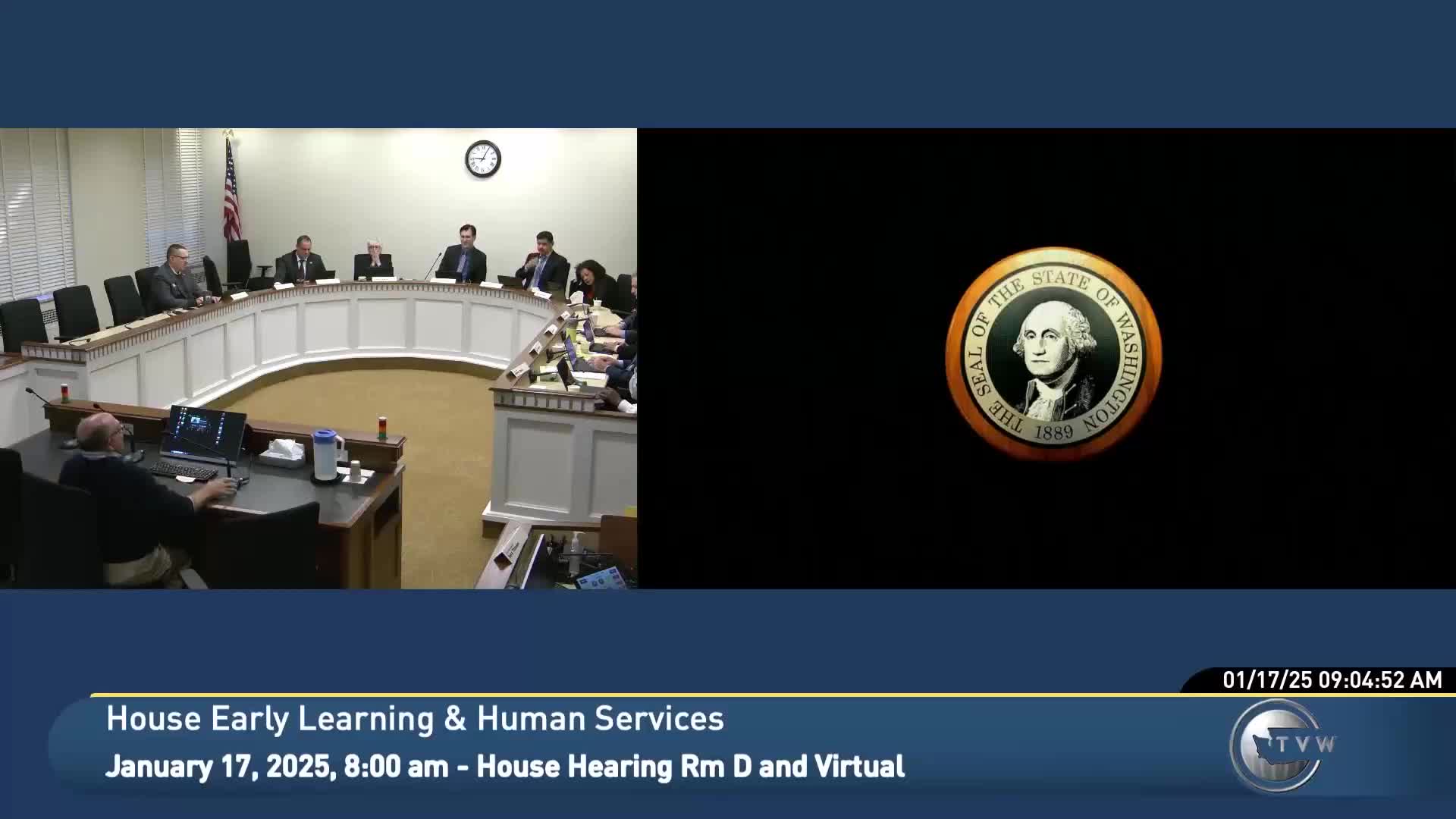
KidVantage outlines diaper, basic-needs distribution and asks to sustain state funding
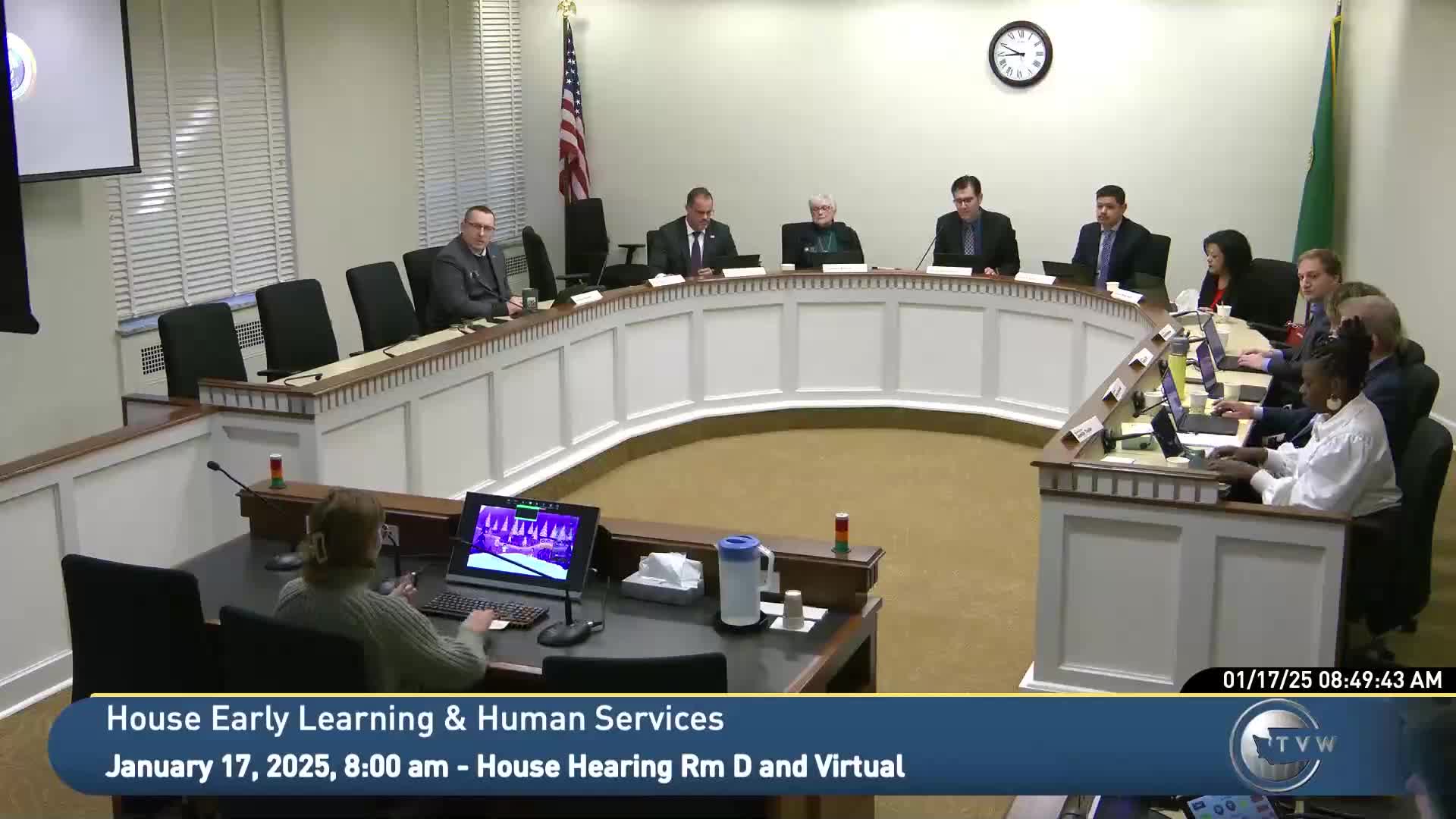
Advocates urge restoring pre-2011 TANF time-limit policy and tying grants to cost-of-living measure
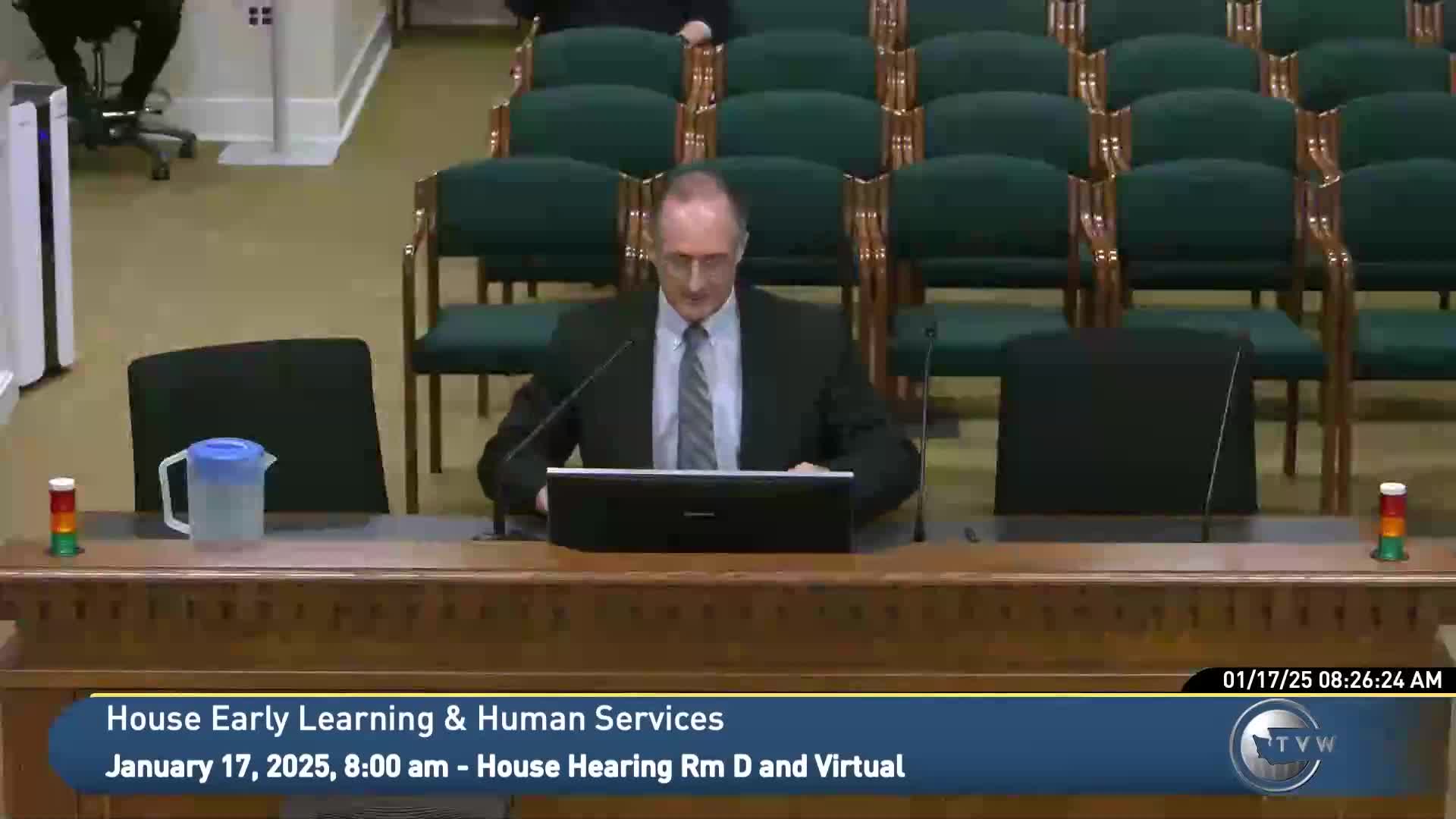
Economic Services Administration briefs committee on caseloads, refugee supports and technology gaps
